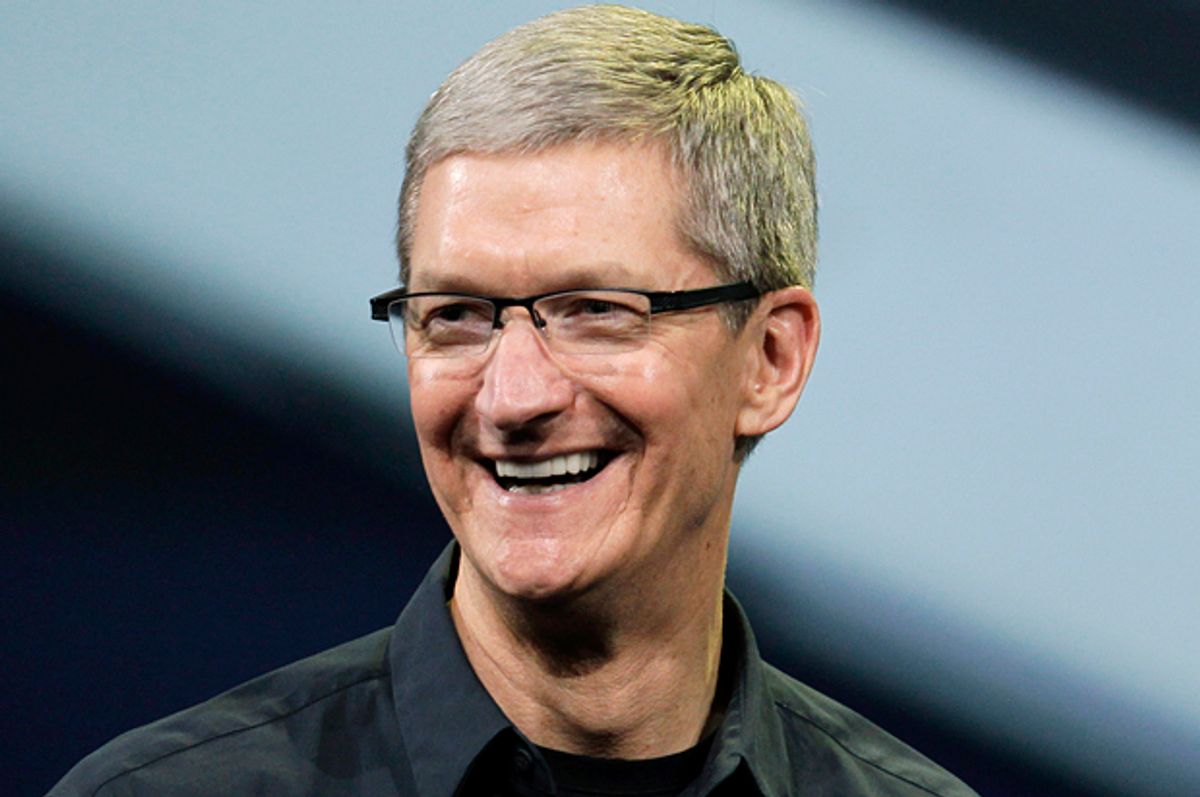You don’t have to be scanning the skies for black helicopters or ranting against Big Government to know that Washington sometimes takes too much power. There’s that series of Middle Eastern wars we seem to have been engaged in for decades now, for instance. When it comes to the FBI, there’s the reign of J. Edgar Hoover and the bureau’s long surveillance of people like John Lennon. Or the surveillance that Edward Snowden revealed.You can think the government makes the right call much of the time, and that we need a strong safety net, that we need a robust state to balance corporate power, and that we don’t want a country ruled entirely by the free market. Still, it’s an enormous and fallible institution. It’s best when there’s a counterweight to its power.
So the idea of the federal government trying to team up with the biggest corporation in the world -- even to dig into the records of a gunman -- is at least a little bit scary. And even scarier is that this has become a minority view. For all the rallies at Apple stores and the assertions of civil libertarians, a new poll by the Pew Research Center shows that a majority of Americans side with the FBI on the matter, by 51 percent to 38 percent. Microsoft founder Bill Gates has come down on the government’s side. A New York Times op-ed by New York police chief Bill Bratton and deputy commissioner John Miller urges Apple to unlock the phone.
By contrast, cellular carriers like AT&T and T-Mobile have made cautious statements, and Sprint and Verizon have not yet taken sides.
According to USA Today:
AT&T has released a statement asking for "legal clarity," noting that many existing telecommunications laws were crafted in a pre-cell phone era. The company's concluding comment seems, if broadly, to cast its lot with one arm of the government: "In a democracy, it is the elected representatives of the people, in this case the Congress, who should decide the proper balance between public safety and personal privacy.”
Apple chief Timothy Cook has become such a folk hero by standing up to the government – and tech moguls getting their way has become such a familiar story -- that it’s easy to overlook the fact that his point of view is opposed by most of the country.
Part of what’s striking here is that Democrats and Republicans have finally found something they can agree on, despite the fact that our county is as polarized as it’s been in something like a century. “The majority of both Republicans and Democrats say Apple should help the FBI unlock the iPhone,” Pew director of public research, Carroll Doherty told USA Today. “It’s 56% of Republicans and 55% of Democrats.”
Perhaps the best piece on this case was by “Free Ride” author Robert Levine, who sees the complexity of the issue – his book is deeply skeptical of tech companies -- but also recognizes that without Apple standing up to the government, dangerous things can happen.
As Levine wrote in the New York Times:
The United States government may have a reasonable case when it comes to Mr. Farook, but a victory here would open a Pandora’s box that can’t be closed in the United States or anywhere in the world. Cracking the phone open also may not help as much as we think: Would-be terrorists can use encrypted communication services that operate in other jurisdictions.
What we really need is a robust public conversation around strong privacy laws that would apply to the government and private companies alike and clear limits on what should be done with data. Important choices about the future of technology and privacy should be made by the American people and their representatives, not by Silicon Valley, where even the noblest intentions are mixed with huge financial stakes. If the government wants the power to compel companies to undermine their own security systems, it should go to Congress and ask for it.
The fact is, letting the federal government tell Apple what to do might help with the Farook case, but it creates big problems down the road.
The people who want Apple and the FBI are not fools: They’re concerned about terrorism and hope that cracking into Syed’s phone can shed light on a mass shooting. But the fact that Tim Cook is opposing the FBI’s demand is not just good PR for Apple (which it is.) It’s essential to keeping our society in balance. Right now, the tension between two of the most powerful institutions in the world is better for us in the long term than having them cooperate. You can hate what happened in San Bernardino and still hope that the relationship between Apple and Washington remains uneasy.


Shares